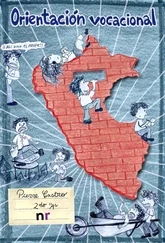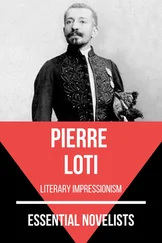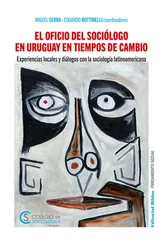After I made sure that they had left, I knocked at the toilet door.
“Claude, open up.”
He tumbled out, gasping as if he had been under water.
“Boy, you got splashed. You stink,” I told him.
“When the bowl collapsed I added to the mess,” he replied. “I shit in my pants.”
Madame Biondi was sitting on the back steps, shaking and sobbing.
“I’m glad that I didn’t flush,” she squeaked.
Before curfew that night, Claude collected his things and went to stay with one of his brothers on the outskirts of town. For both our sakes I wasn’t about to contact my friend until the Nazis were defeated.
A week later I rode my bike down Boulevard de Cimiez to visit my friend Bernard, a skinny seventeen-year-old whose thick glasses had made him the brunt of many of our classmates’ jokes. I had known Bernard since elementary school. In high school we wrote and performed goofy skits on his shortwave transmitter. We loved to imitate Laurel and Hardy. In France, their movies had become extremely popular when the comedic duo chose to speak their lines in French instead of using subtitles. Hearing French spoken with a pronounced British accent was more hilarious than their slapstick, and Bernard and I lampooned their voices in our skits. The shortwave signal was weak, but our friends received our transmissions, and we would be the talk of the school the next day. When our critics became ruthless in their reviews, we ended our careers as radio stars. No sense being the fodder for other kids’ jokes.
Bounding up the marble steps of Bernard’s parents’ villa, I noticed that the heavy front door was ajar. I pushed it open.
“Bernard?”
“ Hände hoch !” (Hands up!)
I couldn’t believe my eyes. It was that Gestapo fatso. He sure didn’t have to shout. His 9mm automatic staring at my forehead was enough. I raised my hands with only one thought in my head, and it was truly peculiar, considering the severity of the moment.
Was that a Luger or Walther? Before I could ask him, he pushed me face first against the wall next to a petrified Bernard. I could tell from the crimson splotches on his face that Bernard had been slapped a few times.
After being frisked by a uniformed Waffen SS corporal, I was ordered to turn around. Fatso was wearing the same tweed suit.
There was a Nazi Party button on his lapel.
“It’s the gardener who didn’t have his I.D. papers,” he said smugly. “What are you doing here?”
“I wanted to see why Bernard missed school yesterday.”
“Do you have your papers today?”
I nodded and handed them to him. I held my breath. These were the papers that I had hoped they wouldn’t find in my father’s study. My false identification papers.
“Pierre Berceau. You’re Italian and have a French name?”
I slid Bernard a glance. Either he was too preoccupied with his own troubles to take notice of my bogus last name or he had a great poker face.
“My father’s French.”
“Of course.”
I held out my hand for my papers, but Fatso slid them into the breast pocket of his jacket. Not a good sign. He pointed at Bernard’s shortwave transmitter that was sitting on the floor.
“Have you seen this before?”
“Sure, my friend has played with it for many years.”
“And you didn’t report it?”
“Why should I?”
“It’s illegal. It’s a weapon, not a toy.”
Bernard started to turn around.
“ Gerade stehen !” (Stand straight!) The corporal bounced Bernard’s head against the wall. His glasses went flying. Whimpering, Bernard knelt to pick them up. A kick in the rear lifted him into the air.
“He needs them,” I protested. “He’s almost blind without them.”
Fatso crushed the glasses under his heel.
Two SS soldiers pushed an elderly couple into the entryway.
They were the housekeepers who had raised Bernard.
“ Was wollen Sie mit den anfangen ?” (What do you want to do with them?), the corporal asked.
“They’re Italian nationals. Let them go,” Fatso answered.
“Have your men take the blind one here and lock him up. I’m sure we can find room on the Paris train for this gardener.”
I was in a panic, but I couldn’t let on that I knew their language.
When they put me in handcuffs I blurted out, “What did I do?”
This time it was my head that was bounced off the wall.
What did I do? Well, it was pretty bad luck on my part to have popped up twice in Fatso’s presence in the span of a week. From his vantage point I had to be guilty of something. And that was all the excuse a Nazi needed.
They hustled us out of the house. Bernard was between the two soldiers and I was behind the corporal and Fatso, who was carrying the transmitter and a bag of loot from the house. What a dirty thief, I thought. Luigi, the gardener for the estate next door, watched from behind the iron fence that my bicycle was chained to. He had seen me lock up my bike that day and many other times. I managed to get the key for my lock out of my pants’ rear pocket and drop it when I passed him. I knew he wasn’t a collaborator, so I was pretty sure I could trust him. This was crucial. I was a courier for the French Resistance, and there was a message hidden in the air pump of my bike. That’s why I had false I.D. papers. I used them to get past roadblocks when delivering messages.
The gardener gave me a wink. Hopefully he would hide my bike in his tool shed. If the Nazis found that message and connected it to me, it would be certain torture and death.
Bernard and his guards got into one of the two Citroëns parked at the curb. I had noticed the cars when I locked my bike, but hadn’t given much thought that they didn’t have the cumbersome gazogene coal burners that civilian cars dragged behind them to fuel their engines. How stupid of me! Only the cars of Nazis and Vichy officials ran on gasoline. Fatso shoved me into the rear seat of his Citroën.
During the drive to the Nice railroad station, I listened carefully to the conversation between the corporal, who was driving, and Fatso, who was inspecting the confiscated valuables.
“I’ll return in a week. Meantime, see if you can get the other little bastard to talk, but keep him alive. Understand? He might be worth a ransom. His family is definitely wealthy and well connected. With his ever-expanding quotas, the one in the back will make Speer happy.”
I breathed a little easier. It seemed that Bernard and I would survive for a while. Speer was Albert Speer, the head of Nazi weapon production, and I, it appeared, was going to become one of the millions of sprockets in their war machine. This meant, if I was smart, my involvement in the Maquis would stay a secret and I would be spared any interrogation and torture.
The corporal took back roads to the train station, a shortcut I had volunteered after he pulled out a map in front of Bernard’s house. The way I saw it, the shorter the trip, the sooner I would be rid of the handcuffs. During the drive, the only person I saw whom I knew was the coffee merchant who was sweeping the sidewalk in front of his shop. I would tag along with my mother when she went to his shop because I loved the dense, invigorating aroma of the freshly roasted coffee beans. With the war came blocked shipping lanes and the aroma disappeared, replaced by the harsh smell of roasted date pits brought in from the French territories in North Africa.
At the station, a passenger train bound for Paris was waiting for us—waiting for Fatso to board, to be exact. The corporal led me to a passenger car behind the caboose. The windows were wired shut and armed guards stood on the platforms at either end of the car.
Once inside, the corporal removed the handcuffs and I was finally able to scratch some very nervous itches. He shoved me into a passenger compartment that had a vacant seat next to a girl a couple years younger than I was. Her freckled, turned-up nose gave her a cocky air, but she greeted me with a shy smile. A feeble “Hello”
Читать дальше












